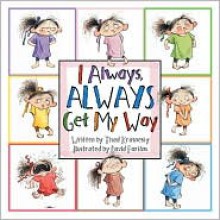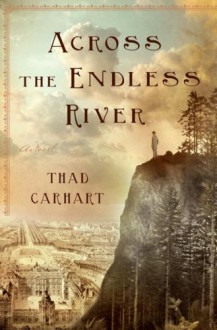

„Stark: The Dark Half“ ist der dritte Roman in Stephen Kings Castle-Rock-Zyklus. Er erschien erstmals 1989 (in meinem Geburtsjahr) und hat einen deutlich biografischen Hintergrund. Sicher wisst ihr, dass Stephen King nach den Erfolgen von „Carrie“, „Brennen muss Salem“ und „The Shining“ einige seiner älteren Manuskripte unter dem Pseudonym Richard Bachmann veröffentlichte, um herauszufinden, ob diese Werke auch ohne seinen berühmten Namen auf dem Cover für ihre Qualität von der Leserschaft geschätzt würden. Dies war tatsächlich der Fall; Richard Bachmann wurde ein kommerziell erfolgreicher Schriftsteller. Bis das Pseudonym 1985 nach der Veröffentlichung von „Der Fluch“ von dem Buchhändler Stephen Brown aufgedeckt wurde. Die Verkaufszahlen der Bachmann-Romane schossen durch die Decke und Stephen King entschied sich dazu, Richard Bachmann sterben zu lassen. In „Stark: The Dark Half“ verarbeitete King diese Episode seines Lebens.
George Stark ist tot. Gemeinsam mit seiner Frau Liz trug Thaddeus Beaumont ihn öffentlichkeitswirksam zu Grabe. Natürlich nur symbolisch, denn Stark war nie wirklich lebendig. Er war Thads Pseudonym, unter dem er drei sehr erfolgreiche Romane veröffentlichte. Stark war definitiv kein angenehmer Zeitgenosse und Thad ist erleichtert, dass er nun aus seinem Leben verschwunden ist. Doch kurz nach der sinnbildlichen Beerdigung gerät der gefeierte Schriftsteller in einen Strudel der Gewalt, der ihn an Realität und Einbildung zweifeln lässt. Stück für Stück werden alle Menschen ermordet, die mit dem „Tode“ George Starks in Verbindung standen. Wer steckt hinter den grausamen Morden? Ein enttäuschter Fan der Stark-Romane? Ein Verrückter, der sich einbildet, George Stark zu sein? Oder… gar Stark selbst?
Ach ja, Stephen King. Mit jedem seiner Romane ist es das Selbe für mich. Seine unheimliche Fantasie lockt mich immer wieder aufs Neue hinter dem Ofen hervor, doch beim Lesen kann er meine Aufmerksamkeit nicht uneingeschränkt fesseln. Leider war das auch bei „Stark: The Dark Half“ der Fall. Ich weiß nicht, ob ich dieses Buch jemals gelesen hätte, wenn ich es nicht auf der Straße gefunden hätte, denn die Geschichte eines mordenden Pseudonyms ist wohl nicht ganz das Richtige für mich. Wenn ich zu einem King greife, möchte ich mich gruseln. Ich will diesen eiskalten Schauer spüren, für den er so berühmt ist. Dazu muss mir beim Lesen bewusst sein, wie haarsträubend seine Ideen sind. Ich habe lange darüber nachgedacht, warum ich mich vor „Stark“ nicht gruseln konnte, obwohl es bizarr, verdreht, absurd und unglaublich ist. Ich konnte den Zwang, die unheimliche, düstere Spirale des Buches spüren, doch ich habe mich nicht darin verloren. Ich denke, das hatte zwei Gründe. Einerseits ließ mich die Idee hinter diesem Roman ziemlich kalt, weil ich überhaupt keine Probleme mit der Vorstellung hatte, dass George Stark lebendig ist. Es fiel mir nicht schwer, seine Existenz zu akzeptieren. Andererseits ist Starks Entstehungsgeschichte meiner Meinung nach sehr abstrakt, sodass sie mich nicht richtig erreichte. Stark ist widerlich, verrückt und extrem gefährlich, aber für meine Begriffe war er zu… real. Es fiel mir schwer, in ihm etwas Unheimliches, Übernatürliches zu sehen, obwohl er das selbstverständlich ist. Er ist ein Scheusal, eine blutgierige Bestie, doch das sind die meisten Serienmörder in der Literatur ebenfalls. Ich kann ihn nicht als den Widerspruch der Natur empfinden, der er ist. Dementsprechend fand ich auch seine Geschichte nicht so außergewöhnlich, wie sie eigentlich ist. Die Verbindung zwischen George und Thad ist beidseitig parasitär; wenngleich klar ist, dass Thad der „Gute“ ist, ist er an Georges Dasein nicht unschuldig. Zwar konnte er nicht wissen, dass er sein Pseudonym zum Leben erwecken würde, nichtsdestotrotz behandelte er sein Alter Ego wie eine Milchkuh, die er molk, wann immer es ihm passte. Er nutzte Stark aus, ohne ihm auch nur einen Funken Respekt zu zollen und als er der Meinung war, ihn nicht mehr zu brauchen, beseitigte er ihn kurzerhand. Natürlich rechtfertigt das keinesfalls Starks Verhalten, aber ich kann seine unbändige Wut durchaus nachvollziehen. Vielleicht hing meine Unfähigkeit, mich zu gruseln, auch mit diesem Verständnis für Stark zusammen. Ich denke, es hätte mir geholfen, hätte ich mehr über die Zeit erfahren, in der Thad als George Stark geschrieben hat. King beließ es bei Andeutungen, die darauf hinweisen, dass sich die Persönlichkeit des sonst so liebevollen, zurückhaltenden, tollpatschigen Ehemannes und Familienvaters grundlegend veränderte. Möglicherweise hätte ich das Abstoßende, Unnatürliche an George Stark besser begreifen und verarbeiten können, hätte ich erleben dürfen, inwiefern er Thads Wesen manipulierte.
Vergleiche ich „Stark: The Dark Half“ mit den anderen Romanen aus Stephen Kings Feder, die ich bisher gelesen habe, muss ich feststellen, dass dieses Werk mich bisher am wenigsten berührt hat. Die Geschichte des Schriftstellers Thaddeus Beaumont und seines Alter Egos George Stark ist zwar faszinierend, doch als schriftgewordenen Horror empfand ich sie nicht. Horror entsteht, wenn wir mit Szenarien konfrontiert werden, vor denen wir uns bewusst oder unbewusst fürchten. Offenbar kommt ein Pseudonym, das in Fleisch und Blut existiert und grausame Morde begeht, in meinem persönlichen Angst-Repertoire nicht vor.
Ich kann „Stark: The Dark Half“ nicht empfehlen, weil eine generelle Einschätzung hier unmöglich ist. Angst ist stets sehr persönlich und individuell; ob dieser Stephen King euren Nerv trifft, kann ich nicht beurteilen. Solltet ihr euch dafür entscheiden diesen Roman zu lesen, verspreche ich euch ein Buch voll mysteriöser Zeichen, Symbole und Zusammenhänge, die sich in Kings typischen Schreibstil zu einem wahnwitzigen Strudel der Absurdität verdichten.

 Log in with Facebook
Log in with Facebook 









